Citizen M, Tower Hill, Reception Lobby
The Rise of the Micro Hospitality Experience
Insights
Hospitality is evolving. Guests no longer equate luxury with size or grandeur. Increasingly, they seek authenticity, personalization, and well-being. The micro hospitality experience exemplifies this shift, demonstrating that small spaces, thoughtful design, and intentional service can create memorable, high-impact experiences.
Rethinking Space and Scale
Micro hospitality leverages constraint as a design advantage. Compact environments demand precision, efficiency, and creativity.
In Tokyo, Nine Hours Capsule Hotel transforms minimalist pods into serene sleep retreats for transient travellers. Zoku in Amsterdam reimagines micro-apartments with modular furniture that adapts between work, rest, and social interaction. Even Arlo Hotels in New York show that small guest rooms, paired with vibrant communal areas, can feel spacious and engaging.
The lesson is clear: the value of a space lies in intention, not square footage.
The Power of Personalisation
At the heart of micro hospitality is the human touch. Thoughtful gestures, even minor ones, amplify guest satisfaction.
The Dean in Dublin curates in-room playlists and minibars reflecting local culture. Made Hotel in New York greets guests with handwritten notes and locally roasted coffee. CitizenM combines playful branding and distinctive art to make guests feel seen and valued.
In a micro context, personalisation transforms ordinary interactions into memorable experiences.
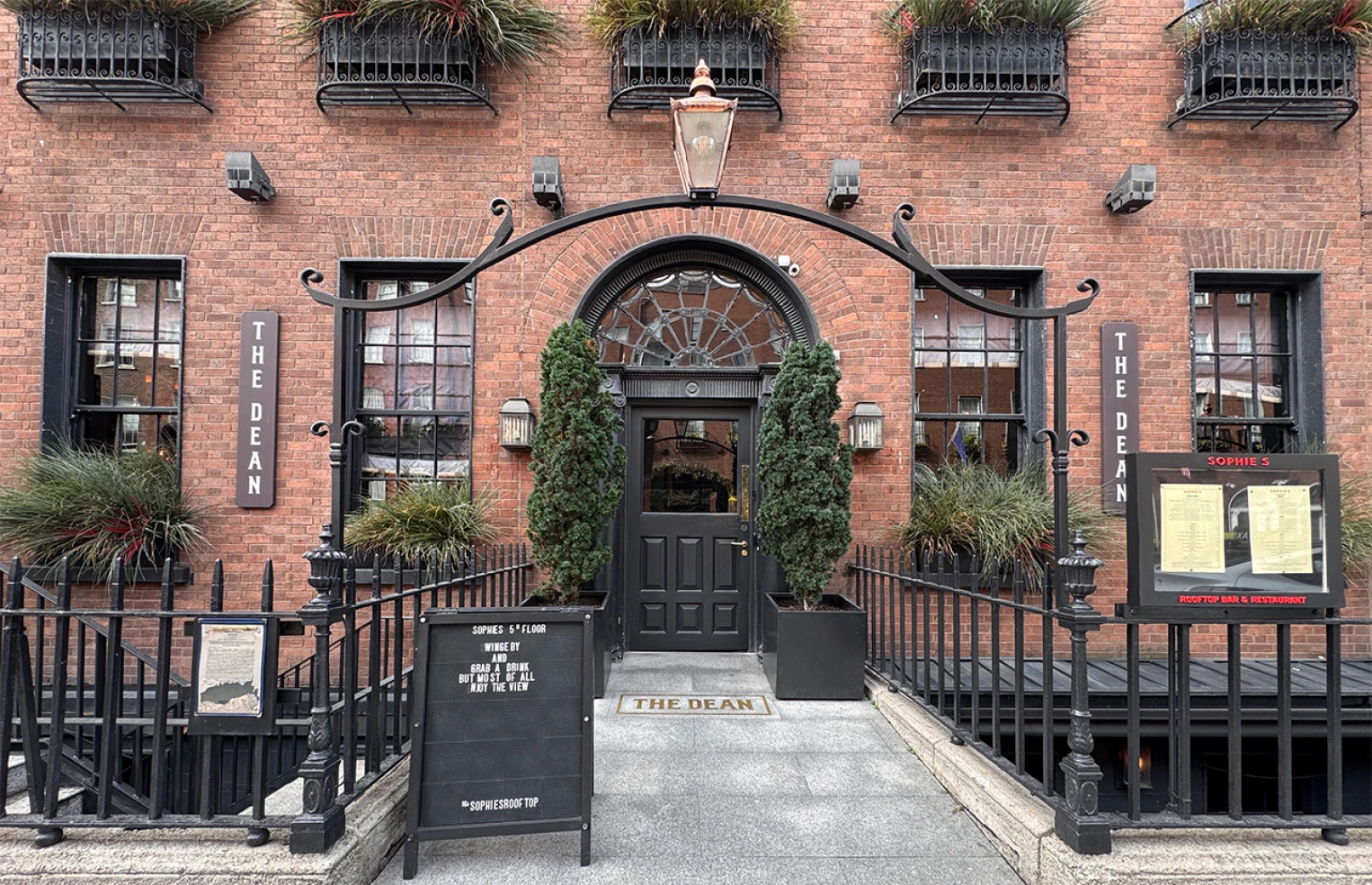
The Dean, Dublin
Technology as an Enabler
Technology enhances micro hospitality when deployed strategically. YOTEL uses self-check-in kiosks and robotic luggage storage to streamline service, while Hilton’s Connected Rooms allow guests to control lighting, temperature, and entertainment through an app. CitizenM further integrates mobile controls for room access and amenities.
The key principle: technology should remove friction without undermining human connection.
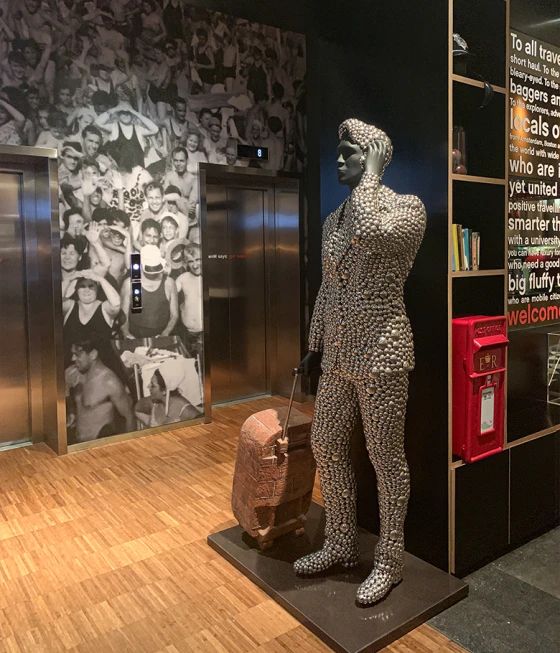
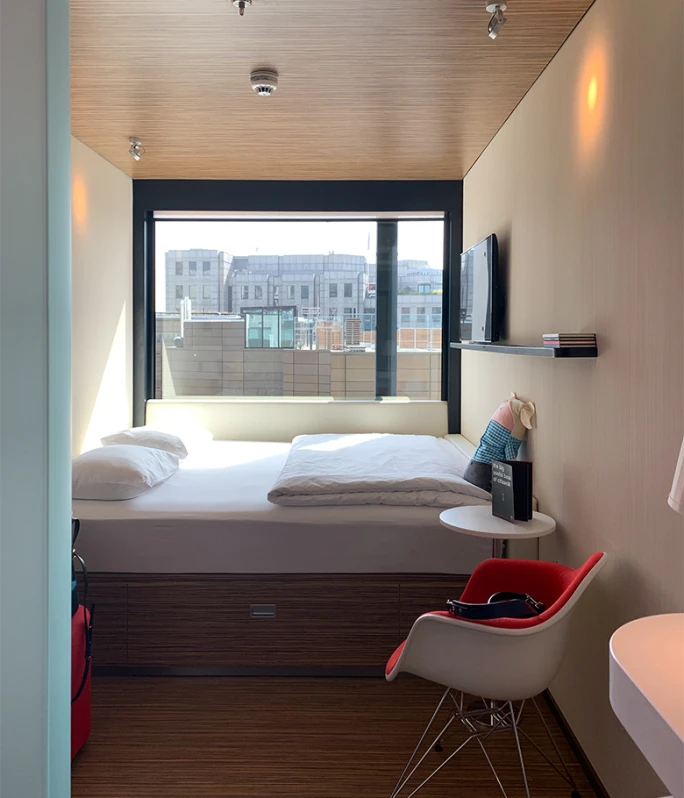
Citizen M, Tower Hill, Bedroom Suite
Cultural Connection and Local Context
Micro hospitality thrives when it reflects the surrounding culture. Freehand Hotels collaborate with local artists and chefs, while The Standard Hotel, London integrates reclaimed materials and retained its original Brutalist building and concrete frame, saving significant embodied carbon that creates its unique aesthetic. Platforms like Airbnb Experiences extend this philosophy, offering curated local activities that deepen engagement.
Through thoughtful design and storytelling, even a brief stay can provide a meaningful cultural experience.
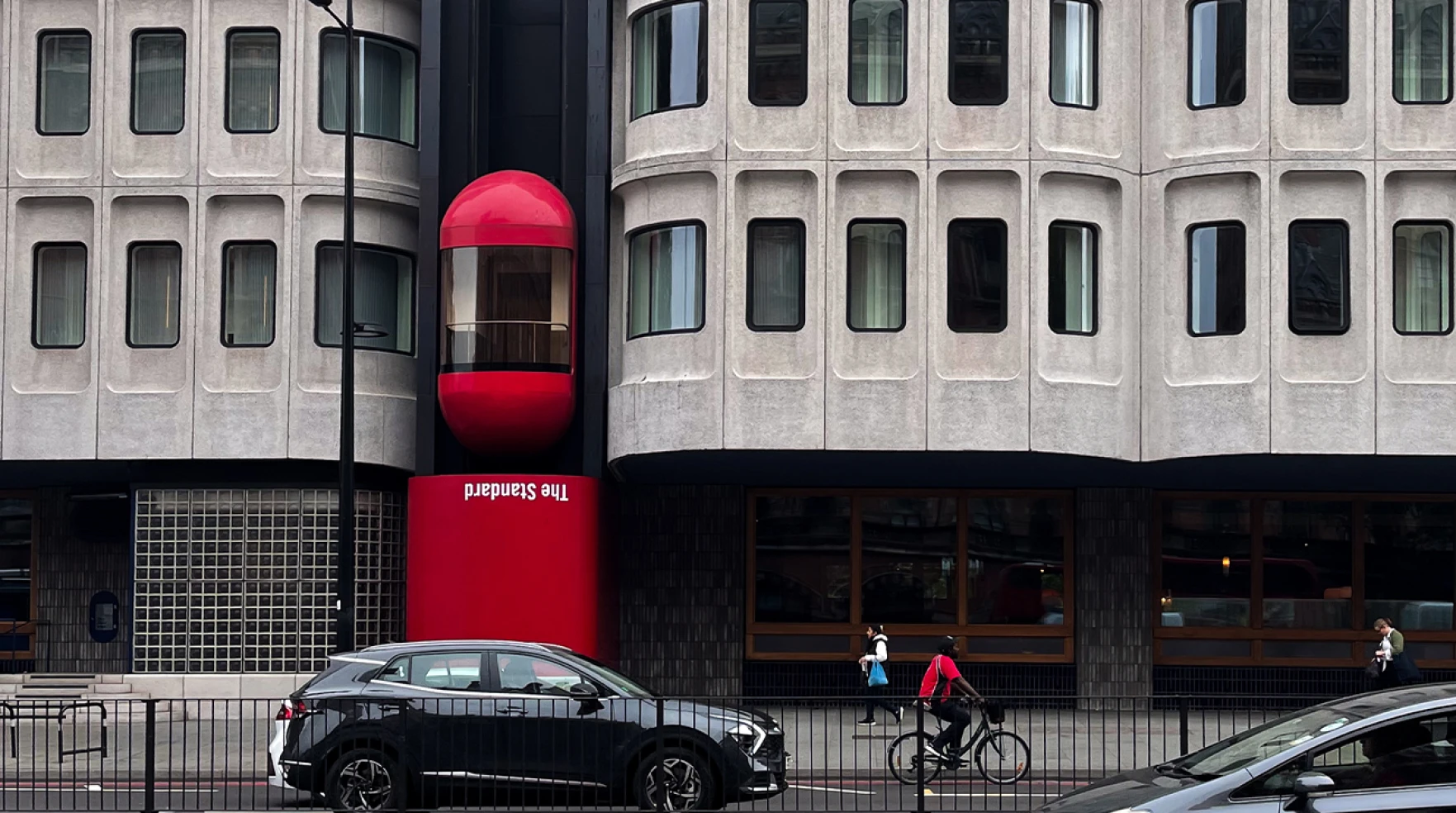
The Standard Hotel, London
Wellness and Sustainability
Small-scale hospitality also supports well-being and responsible design. GoSleep Pods at Helsinki Airport provide restful, private spaces, while Equinox Hotel optimizes lighting and acoustics for restorative sleep. On the sustainability front, Moxy Hotels minimize room footprints, and Treehouse Hotel in London emphasises reclaimed materials and eco-conscious construction.
The ethos of micro hospitality: less, but better, benefiting both guests and the planet.
Looking Ahead
Micro hospitality principles are expanding beyond hotels into workplaces, healthcare, and retail. Co-working spaces like WeWork prioritize hospitality-driven design, clinics such as One Medical emphasise patient-centred environments, and retail leaders like Apple integrate curated micro experiences into their stores.
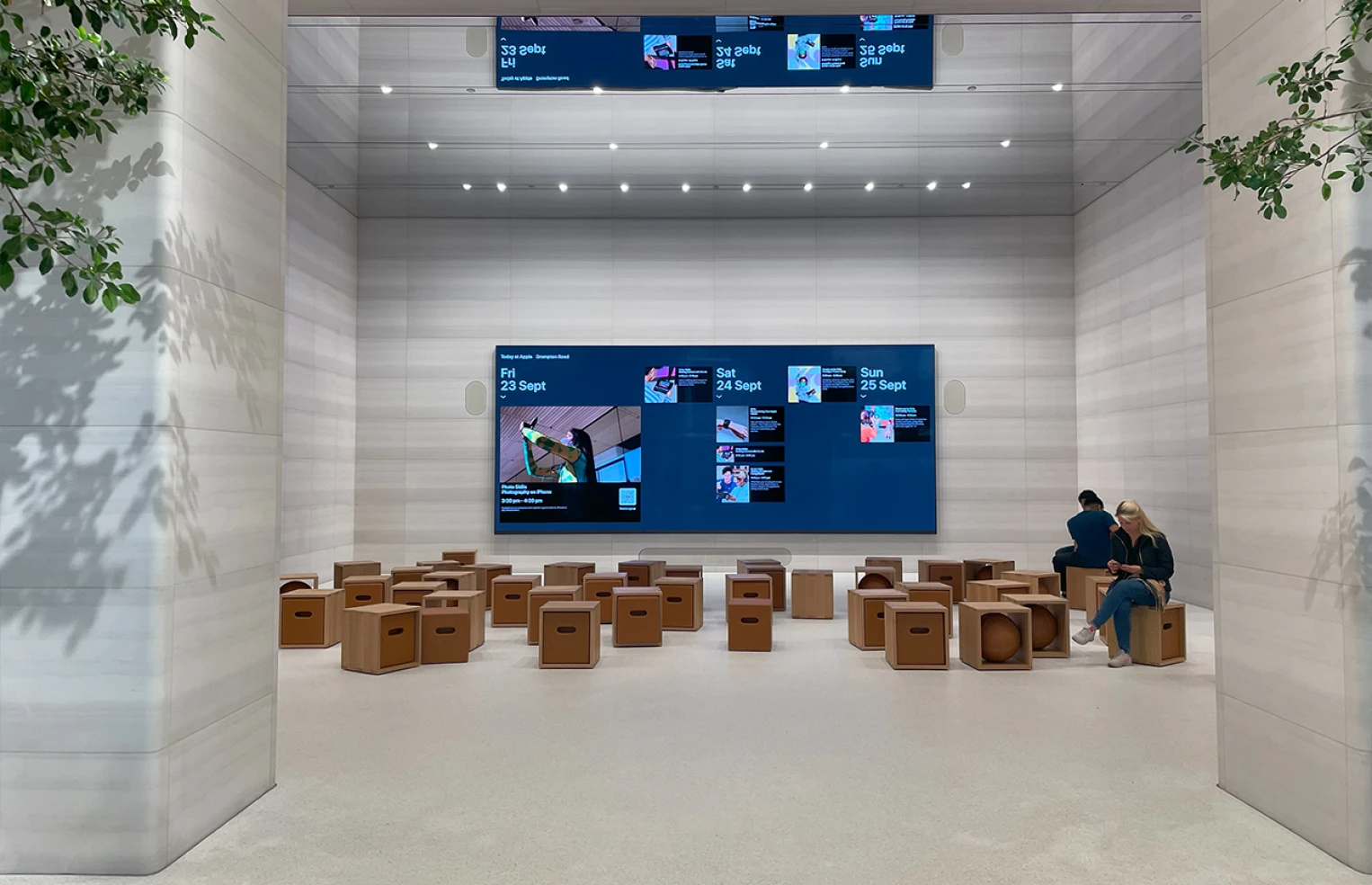
Apple Store, London
Conclusion
The micro hospitality experience demonstrates that exceptional care is not a function of scale. Intentional spaces, personalised touches, and cultural grounding create lasting impact. In an era of overwhelming choice, the smallest gestures, thoughtfully executed, can define the future of hospitality.